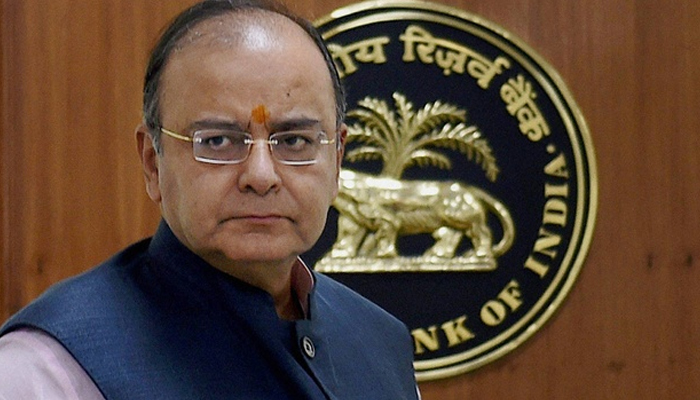On November 16, during CPI-M general secretary, Sitaram Yechury's speech in the Rajya Sabha yesterday, Finance Minister Arun Jaitley had intervened on the issue of the "write offs" of non-performing assets of persons like Vijay Mallya and the benefits accrued to political parties under the amended rules of the Foreign Contribution Regulation Act (FCRA)

Sitaram Yechury has strongly rebutted the misleading claims made by Finance Minister on both issues:
On Loan Write Offs
During my speech on the demonetisation issue in the Rajya Sabha on November 16, when I raised the issue of Rs 1,12,078 crore of unpaid loans being written off in FY 2014-15 and FY 2015-16, the finance minister intervened to say that these "write offs" are merely an accounting entry.
He went on to add that this means that the bad loan is taken off the books of a bank, but
the banks will still attempt recovery of this money. This gives an incomplete (and inaccurate) picture of the real situation.
What does taken off the books mean?
It means that the banks do not attempt to recover this because it does not affect their balance sheets any longer.
The minister also added that a ‘write-off’ means that the loan, becomes, from a performing asset, a non performing asset. This is incorrect as it is the non-performing asset which is written off.
The rules for conversion of a performing asset to a non-performing asset are clearly stated by the RBI in its master circular (particularly, sections 3.5, 5.9 and 5.10 of Master
Circular on "Prudential Norms on Income Recognition, Asset Classification
and Provisioning – Pertaining to Advances").
The minister may like to check his facts on this count.
Getting back to the issue of write off, in a letter to The Indian Express newspaper, the RBI itself had clarified that the total write-offs includes – I repeat, only includes — a large portion of technically written-off accounts where the recovery efforts continue as usual. But as the RBI's former deputy governor KC Chakrabarty has noted, after a technical write-off, when the bad loan is no longer on the books, there is no incentive for banks to pursue recovery.
As far as tall claims of this government for recoveries of written off loans go, the facts speak for themselves. The conviction rate of wilful defaulters under this government was 1.14% in 2015-16, even lower than 1.45% in 2014-15. So much for the finance minister's talk of written-off loans being recovered from willful defaulters by his (the Modi) government.
The finance minister may like to check his facts and tell the country how much of the "written off" loans has his government recovered. If not, written off loans are not just technical, it is real money of the people being given by the government to crony corporate and the being written off.
If the government is really serious in recovering these loans why are they not confiscating the properties and returning these loans that are people's savings to the nationalized banks from which they were taken?
On FCRA
During my speech on demonetisation, the Finance Minister intervened to explain the amended Foreign Contribution Regulation Act (FCRA), 2010 as a mere "technicality", and not having any effect on the funding of political parties. This is yet again, a sleight of hand.
The FCRA was amended with retrospective effect not by introducing and debating a bill in parliament. The govt, instead, brought an amendment to FCRA in February 2016 through the 2016 Finance Bill to avoid scrutiny. It amended Section 2(1) (j) (vi) of FCRA, 2010, by adding a proviso with retrospective effect. The Representation of People's Act bars political parties from receiving foreign funds, but after this amendment, they can receive funding from foreign donors which will bypass government scrutiny.
The amendment was brought in retrospectively because the ruling party was charged with illegally receiving foreign funds for political activities from U.K.-based Vedanta Group from 2004 to 2012, thereby violating FCRA provisions. The case is still being heard in the Supreme Court.
After the amendment, a foreign company – often foreign multi-national giants – through their Indian arm/entity (where they may have more than 50% Indian holding) can fund Indian political parties. Effectively therefore, foreign companies can fund Indian political parties, through this arm. This raises serious concerns about circumventing the Representation of People's Act for foreign funding of Indian political parties.